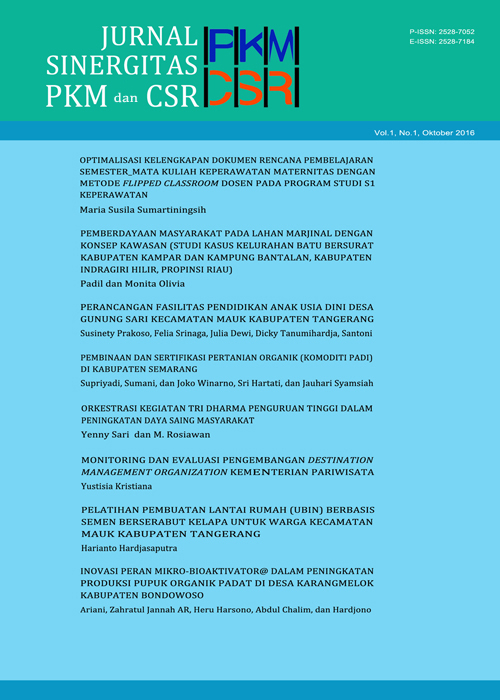TRANSFORMASI KELAS: KEKUATAN LITERASI MEDIA DALAM PENDIDIKAN SEKOLAH DASAR DAN MENENGAH
DOI:
https://doi.org/10.19166/jspc.v8i3.9147Schlagworte:
Literasi Media, Pendidikan, Critical thinking, Digital citizenship, teacher professional development, classroom transformationAbstract
Di era digital, literasi media telah muncul sebagai komponen penting dalam pendidikan, Artikel ini mengeksplorasi dampak transformatif dari pengintegrasian literasi media ke dalam kelas, menekankan peran penting guru dalam mendorong analisis kritis, evaluasi, dan pembuatan konten media di kalangan siswa. Hal ini disampaikan dalam program bina guru sekolah Yayasan Pendidikan Kristen Indonesia di Magelang, yang merupakan program peningkatan kualitas professionalisme bagi para guru. Melalui program ini, guru dapat mengembangkan keterampilan berpikir kritis, menjadi mahir dalam membimbing siswa sebagai warga digital yang bertanggung jawab, dan memfasilitasi keterlibatan yang lebih mendalam dengan kurikulum. Artikel ini memaparkan bagaimana literasi media menumbuhkan kreativitas, kolaborasi, dan keterampilan komunikasi yang penting untuk menavigasi lanskap digital dan mempersiapkan siswa untuk karir masa depan. Program ini mempromosikan empati dan inklusivitas dengan mengatasi bias dan perspektif dalam media, sehingga meningkatkan pengalaman belajar. Strategi praktis untuk integrasi kurikulum dan pengembangan profesional guru juga disoroti, menggarisbawahi pentingnya pendidik dalam merevolusi metode pengajaran tradisional dan membekali siswa dengan keterampilan penting abad ke-21.
Literaturhinweise
Araújo, C. L., Aguiar, C., & Monteiro, L. (2023). Media literacy in early education: European policies and curricular differentiation. Educational Media International, 60(3–4), 242–256. https://doi.org/10.1080/09523987.2023.2324591
Anderson, M., & Perrin, A. (2022). The Internet and Education: Digital Divides and Opportunities for Learning. Pew Research Center.
Beckett, K., & Lee, A. (2019). Media literacy as a key component in creating media-savvy students. Journal of Broadcasting & Electronic Media, 63(2), 349-359.
Burns, M. (2021). Technology and Education: A Systems View of Digital Learning. Journal of Research on Technology in Education, 53(2), 137–153.
Klawans, J. (2024). The push for media literacy in education amid the rise of AI. The Week US, Published in April 2024. https://theweek.com/tech/media-literacy-AI-schools
Riel, J., Christian, S., & Hinson, B. (2012). Charting digital literacy: A framework for information technology and digital skills education in the community college. Presentadoen Innovations. http://dx.doi.org/10.2139/ssrn.2781161
Rojas-Estrada, EG., Aguaded, I. & García-Ruiz, R. Media and Information Literacy in the Prescribed Curriculum: A Systematic Review on its Integration. Educ Inf Technol 29, 9445–9472 (2024). https://doi.org/10.1007/s10639-023-12154-0
Syarah, E. S., Mayuni, I., Dhieni, N. (2020). Understanding Teacher's Perspectives in Media Literacy Education as an Empowerment Instrument of Blended Learning in Early Childhood Classroom. Jurnal Pendidikan Usia Dini, Vol. 14, No. 2. https://doi.org/10.21009/JPUD.142.01
Trust, T., & Whalen, J. (2021). The Rise of Digital Equity: Challenges and Opportunities in the Age of COVID-19. TechTrends, 65(6), 827–839.
UNESCO (2020). Education in a Post-COVID World: Nine Ideas for Public Action. https://www.unesco.org/en/articles/education-post-covid-world-nine-ideas-public-action
Website:
The Importance of Media Literacy for Students and Teachers. https://plus-project.eu/importance-media-literacy-students-teachers/
UNESCO - Media and Information Literacy. https://www.unesco.org/en/media-information-literacy
Downloads
Veröffentlicht
Ausgabe
Rubrik
Lizenz
Copyright (c) 2024 Naniek Setijadi

Dieses Werk steht unter der Lizenz Creative Commons Namensnennung - Weitergabe unter gleichen Bedingungen 4.0 International.
Authors who publish with this journal agree to the following terms:
1) Authors retain copyright and grant the journal right of first publication with the work simultaneously licensed under a Creative Commons Attribution License (CC-BY-SA 4.0) that allows others to share the work with an acknowledgement of the work's authorship and initial publication in this journal.
2) Authors are able to enter into separate, additional contractual arrangements for the non-exclusive distribution of the journal's published version of the work (e.g., post it to an institutional repository or publish it in a book), with an acknowledgement of its initial publication in this journal.
3) Authors are permitted and encouraged to post their work online (e.g., in institutional repositories or on their website). The final published PDF should be used and bibliographic details that credit the publication in this journal should be included.


